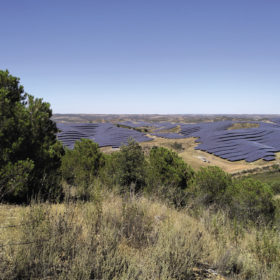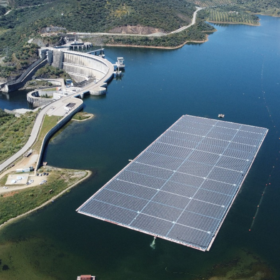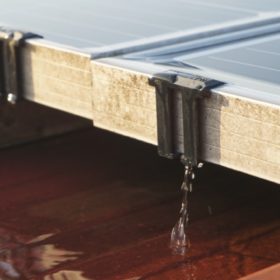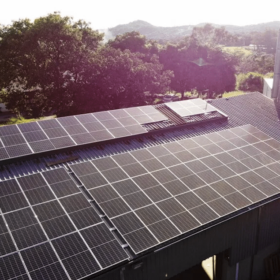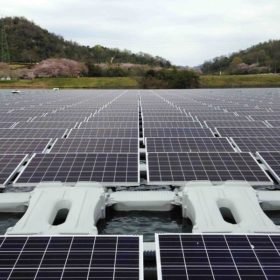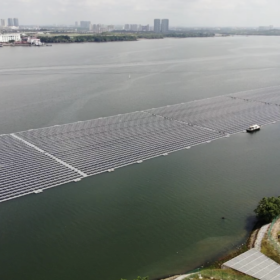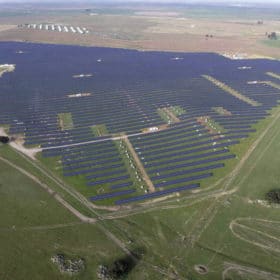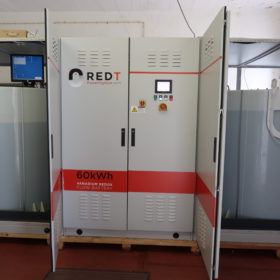The weekend read: Portugal’s enormous PV potential
Portugal’s PV tenders have generated headlines on the back of world-record tariffs. But the country has failed to add meaningful capacity and is now struggling to establish a workable licensing system. Merchant solar shows enormous potential to drive the market, but will politicians listen?
Storage-linked 5 MW floating PV plant goes online in Portugal
Portuguese utility EDP has switched on a new 5 MW floating solar array at the Alqueva hydropower dam.
New water-draining device for rooftop PV systems
Portuguese startup Solarud has developed a way to eliminate soiling around the frames of PV panels with low inclination slopes. The device drains water that would otherwise stay stagnant on the surface of modules.
Portugal streamlines permits for renewables
The Portuguese government has approved exceptional measures to simplify renewable energy production. The new provisions include the exemption of operating licenses and operating certificates for renewable energy facilities, battery storage, and projects for self-consumption.
Winners, prices of Portugal’s record-breaking auction for floating PV
EDPR, Finerge, Voltalia and Endesa were among the winners of Portugal’s latest renewables procurement exercise, in which 163 MW of floating PV capacity was allocated.
EDP wins project with negative bid in Portugal’s 263MW floating PV tender
Portuguese utility EDP has won the largest project in Portugal’s latest procurement exercise. It has agreed to pay –€4(–$4.39)/MWh for a 15-year contract, but with a 30-year grid connection for the floating array and other renewables projects.
The Hydrogen Stream: CPV-powered PEM electrolyzers for 1.2MW demo in Portugal
Fusion Fuel Green has developed a small PEM electrolyzer that will be used in a green hydrogen project in Iberia. Elsewhere, India’s Adani Group and Canada-based PEM fuel cell producer Ballard Power Systems have signed a memorandum of understanding to evaluate a joint investment in the commercialization of hydrogen fuel cells for mobility and industrial applications in India.
Portugal installed 701 MW of solar in 2021
The country’s cumulative PV capacity reached 1.77 GW at the end of December.
Portuguese solar plants – tendered and merchant – remain in limbo
One of the first items in the in-tray of the country’s new Socialist Party government must be to unblock Portugal’s seemingly huge appetite for PPA-backed merchant solar sites and to deliver the PV projects which were tendered by the authorities, to global acclaim, in 2019 and 2020.
Vanadium redox flow battery to control extreme power ramps in rooftop PV
Researchers in Portugal have tested how vanadium redox flow batteries can be integrated with rooftop PV to balance the system load to ensure firm power output. They proposed a 5 kW/60 kWh battery configuration for a 6.7 kW building-integrated PV microgrid. According to their findings, the battery can be used in different energy management strategy scenarios to better complement solar photovoltaic generation.
